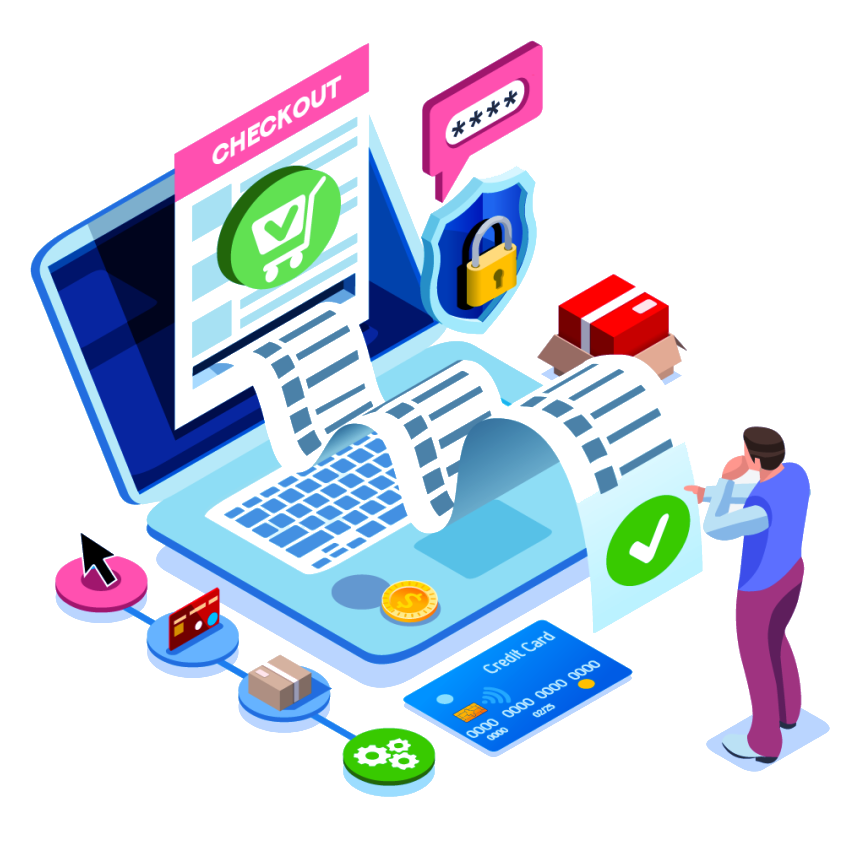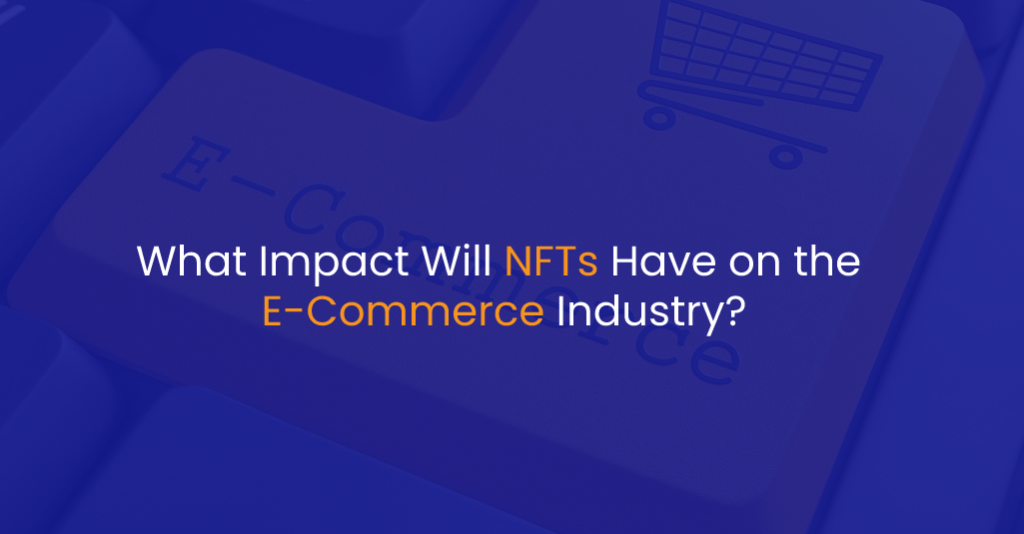Non-Fungible Tokens Are Strengthening the Future of E-Commerce
Non-fungible tokens, sometimes known as NFTs, are blockchain-based digital assets. An NFT can be anything from a JPEG or GIF image to an audio file with a recording.
Customers who purchase an NFT get the token itself, not simply the right to use it. As a consequence, they can maintain ownership or sell it to a potential buyer.
The Psychology of NFTs
It’s easy to dismiss the NFT mania as completely ridiculous. One could wonder why one would spend money on an intangible “item” that can be obtained for free elsewhere. NFTs are nearly the digital equivalent of purchasing original artworks rather than replicas. Even though they seem similar on the wall, only one person may own the genuine article.
What Exactly Are NFTs, And How Do They Work?
The Ethereum blockchain, which is the 2nd most popular cryptocurrency after Bitcoin, is where NFTs are stored. Ethereum was developed as a ledger system that supports smart contracts, which enable the transfer of NFT ownership from a person to another.
To put it simply, blockchain is a decentralized data storage system that relies on huge peer-to-peer networks. Data is kept in ‘blocks,’ that are chronologically ordered and time-stamped, to ensure its authenticity.

NFTs are a sought-after commodity due to their uncontested ownership. As a result, there is a growing need for NFT token creation.
Major Benefits of NFTs
Tradability
Because of their one-of-a-kind value, NFTs may be traded on any platform with ease.
Holdings
Since non-fungible tokens are constructed on blockchain technology, a purchase can be tracked back to the original owner, confirming the buyer’s legitimacy.
Dependability
Non-fungible tokens are created on the blockchain and operate in a decentralized manner. As a consequence, neither central authorities nor third parties are engaged.
What Are the Advantages of Integrating NFT With An E-Commerce Platform?
E-commerce is a trading platform that enables consumers to buy and sell things over the internet or other digital channels. Business-to-business (B2B), business-to-consumer (B2C), direct-to-consumer (D2C), consumer-to-consumer (C2C), and consumer-to-business (C2B) e-commerce models are available (C2B).
Non-fungible token adoption on e-commerce platforms has become a hot subject in the crypto industry. NFT integration solutions are being developed by several e-commerce platforms.
Get your NFT created for your asset by the leading NFT development company, India!
What More Can We Know About Consumer Culture From Non-Traditional Retailers?
Scarcity attracts customers. The surprising success of NFTs demonstrates how supply affects value. The more difficult something is to achieve, the more desired it is. As they become increasingly prevalent, NFTs challenge notions of digital commodities as omnipresent and devoid of tangible worth.
It is impossible to overestimate the significance of content. NFTs, despite their complex blockchain underpinning, require just one thing to function: content. NFTs would not exist if there was not such a great demand for creative and compelling content. It’s a clear illustration of how businesses are increasingly dependent on interesting content to keep customers interested in the face of fierce competition in the market.

Platforms For E-Commerce: What Are The Opportunities of NFTs?
Because it operates in a centralized ecosystem, the trade of goods and services on an e-commerce platform includes several third-party authorities. The commission distribution is substantially skewed as a result of these middlemen.
In recent years, the popularity of NFTs has skyrocketed to unprecedented levels. Owning a digital asset is a common practice in the business world. Its incorporation creates tremendous income opportunities for business concepts.
Buyers may be unable to locate genuine items in stores and hence miss out on buying them immediately. As a result, the e-commerce company may add NFT capabilities by instantaneously sending a digital duplicate of the real products bought to the client. Orders are processed and shipped to consumers within a few days after being placed. The consumer is satisfied and happy since the NFT version of the ordered digital asset is delivered.

Ordinary people used to find it difficult to purchase non-fungible tokens, but owing to their user-friendly features, NFTs have grown in popularity. Furthermore, the e-commerce platform is expanding in line with the rise in NFTs.
Following the events of Covid-19, many individuals have turned to these internet marketplaces to trade and purchase crucial things. As a result, various e-commerce platform operators are investigating the production of NFT tokens.
Several third parties are involved in e-commerce; adding NFTs to these platforms will eliminate these third parties. Businesses involved in e-commerce can profit from the combination of NFTs with e-commerce.
Traditional shopping’s drawbacks have been mitigated by e-commerce platforms. Unlike the traditional way, purchasing a single item from an internet shop does not necessitate long-distance travel or standing in long queues. However, the things are not delivered to you right away. When you order goods from an online store, it takes some time for it to be delivered.
However, employing non-fungible tokens can assist in resolving this issue. Customers may have the digital form of their items sent to them immediately, giving them the most satisfaction from an e-commerce transaction.
Summing Up
Many entrepreneurs are turning to companies that specialize in non-fungible token development services. iStudio Technologies provides full NFT development services, ranging from the creation of non-fungible tokens through the establishment of NFT marketplace systems. To provide real results, our blockchain engineers and domain specialists tailor their services to your needs.
Contact our team of experts to discuss your requirements for creating an NFT token.



